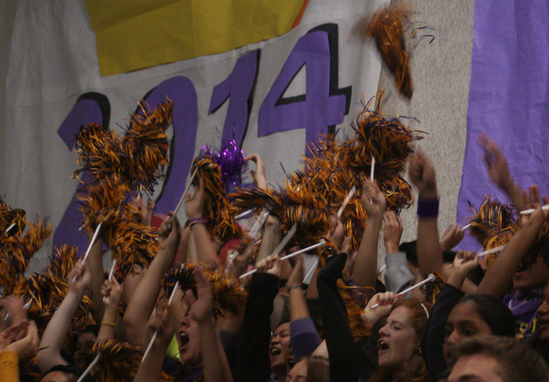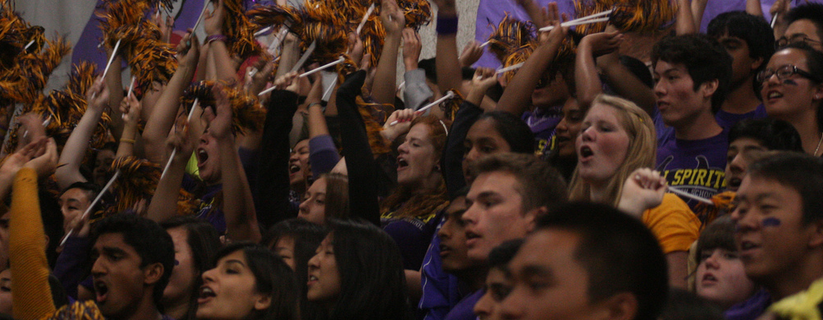Multicolored handprints etched on students’ faces are the same as war paint applied ceremoniously before battle. The rally is a fight to the death between valiant warriors screeching battle cries. Class points are vital ammunition to be used against daunting opposition.
We get it. For a lot of students, Homecoming week is a big deal. But to many students, Homecoming ranges from merely a fun activity to a distraction from more important things in life. For students who are not die-hard spirit enthusiasts, the constant pressure to dress up, attend the rally and prioritize class spirit over other activities by enthusiastic class spirit participants makes Homecoming a frustration rather than an enjoyable celebration.

Students encouraging others to participate in the festivities of Homecoming is fine. After all, the goal of Homecoming is to foster class spirit and unity, and this is best achieved when as many people as possible get involved. But there is a fine line between positive encouragement and pressure.
Homecoming dress up days are a large contributor to class spirit peer pressure — many students bring extra dress-up items to school for fellow class members. While this is an acceptable way to supply dress-up items to students who simply forgot to dress up or did not have anything appropriate to wear, compelling students to dress up when they don’t want to crosses the line from enthusiastic encouragement to intimidation.
Other forms of class spirit peer pressure come from gross exaggeration of the importance of Homecoming week. During last week’s Homecoming, a post in the Class of 2014 Facebook group claimed that the day of the rally was the most important day of students’ lives. While Homecoming clearly means a great deal to a lot of students, universal statements in public forums isolate students who may not feel as dedicated to the event, even if the posts are not meant literally. Rather than automatically assuming that winning Homecoming is of equally vital importance to all students, spirit enthusiasts should realize that not everyone has the same level of dedication to winning. Publicly sharing excitement for events, especially on forums like class Facebook groups, is also perfectly acceptable — but enthusiasts should share this excitement in an unimposing manner.
Peer pressure concerning class spirit crossed the line to physical threats, as well. One group of students from the Class of 2015 posted in the class Facebook group that Juniors not dressed up for Mount Olympics day on Thursday would be “posterized,” a prank that consists of dunking a basketball directly above a person’s head. The group proceeded to record a video of themselves doing this to various students (most of whom were in fact dressed up), and posting the video on YouTube. While this prank was clearly conducted in good fun, the threat of physical bullying is unacceptable in any situation. The fact that the threat and execution of physical intimidation was used to punish students for not participating in Homecoming activities shows the extent to which class spirit enthusiasts feel it is acceptable to impose their spirit values on others.
Moreover, students weren’t the only sources of pressure — teachers contributed as well, as in the case of one teacher who offered extra credit points to students who dressed up. As the results of Homecoming have no effect on students’ academic careers, there is no reason to bring Homecoming competition into the classroom, causing teachers to join the league of pressuring spirit enthusiasts.
These various forms of peer pressure, including physical threats as well as participation by teachers, undermine the true goals of Homecoming week and ostracize members of the student body who are less enthusiastic. It is understandable that those who are invested in Homecoming want to get as many people participating as possible, but beyond a few gentle nudges, enthusiasts should leave those who do not want to participate alone.
Homecoming week should be a fun way for students to bond with their class and take a break from worrying only about school — but only if students want to. To those who see Homecoming week as a war of life or death: Battle on. But don’t drag unwilling bystanders into the battle with you.








